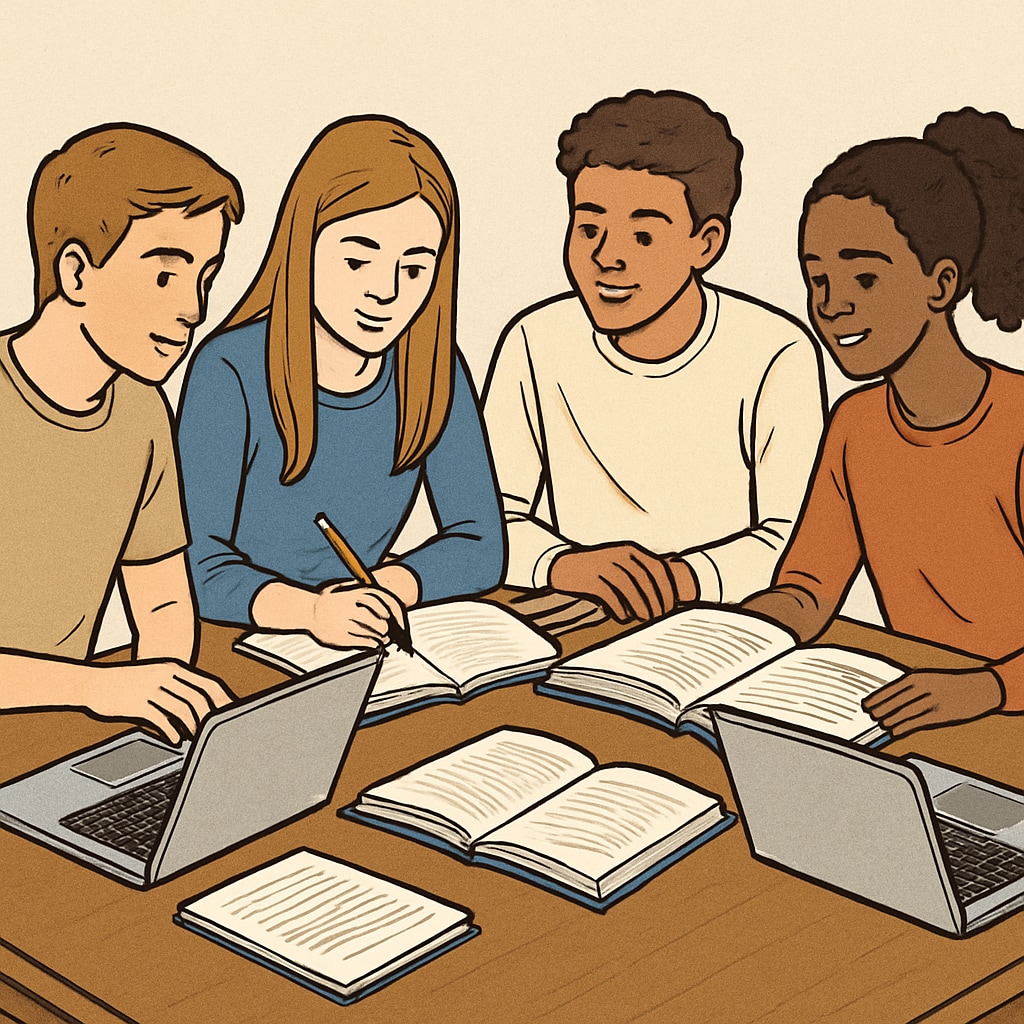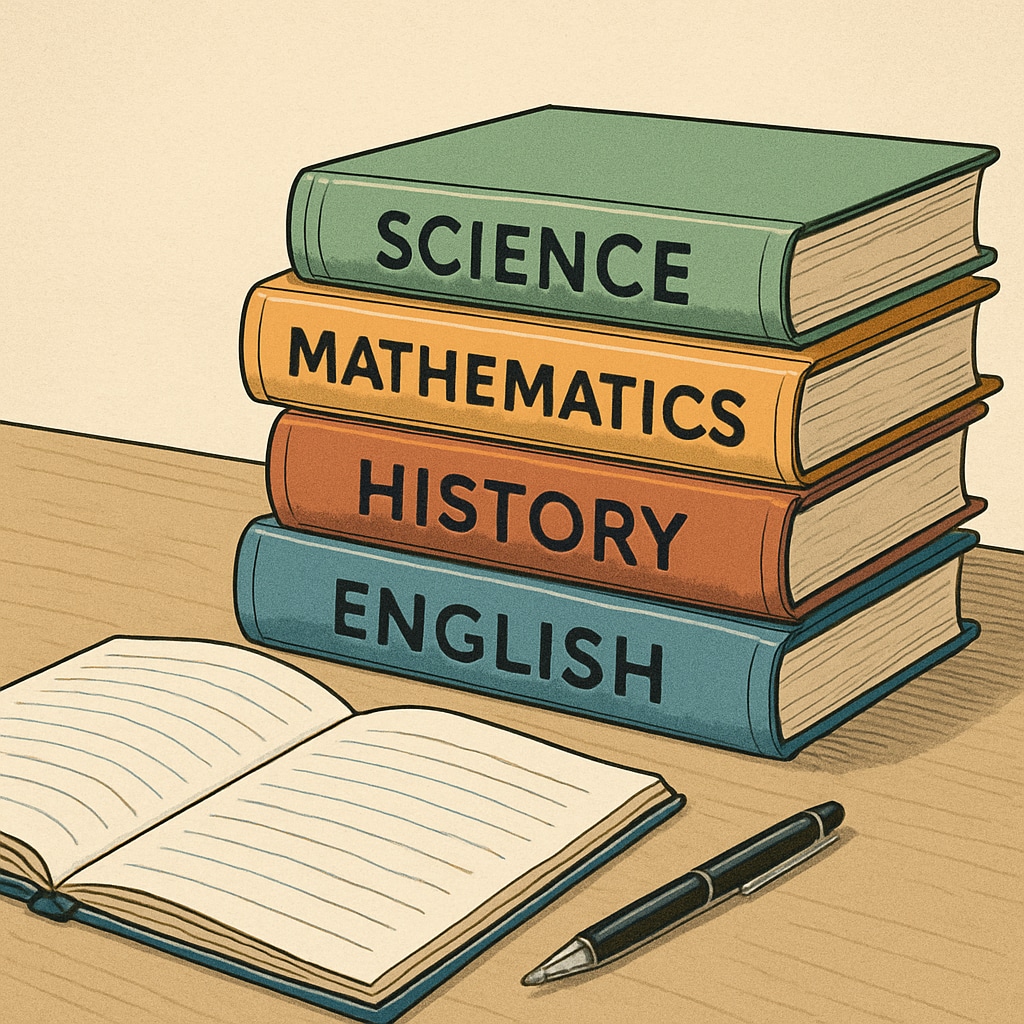Mastering effective study methods and memory retention techniques is essential for teenagers as they navigate their academic and personal growth. In this article, we provide a comprehensive selection of six books tailored to the needs of teens, focusing on practical strategies backed by cognitive science. These recommendations will empower young learners to enhance their learning efficiency, improve memory retention, and build a foundation for lifelong education.
Why Study Methods and Memory Retention Matter for Teens
Teenagers face a unique set of challenges when it comes to learning. With packed schedules, distractions from technology, and increasing academic demands, it’s crucial to equip them with the tools they need to succeed. Effective study methods not only help in understanding and recalling information but also reduce stress and improve overall performance. Memory retention, on the other hand, ensures that the knowledge gained is stored in long-term memory, ready for application when needed.

Top Six Books on Study Methods and Memory Retention for Teens
Below are six well-curated books that address different aspects of learning and memory retention. Each book combines practical advice with insights from cognitive science, making them ideal resources for teens.
-
“Make It Stick: The Science of Successful Learning” by Peter C. Brown
This book is a must-read for anyone looking to improve their learning habits. It debunks common myths about studying and offers science-backed strategies such as spaced repetition and retrieval practice. Teens will benefit from its clear, engaging writing style and actionable tips.
-
“How to Become a Straight-A Student” by Cal Newport
Cal Newport offers a practical guide to mastering academics without burning out. His methods emphasize efficiency, focus, and the importance of deep work, making this book perfect for teens juggling multiple responsibilities.
-
“Moonwalking with Einstein” by Joshua Foer
In this fascinating narrative, Joshua Foer shares his journey into the world of memory championships. Teens will learn memory techniques such as the “memory palace,” which can make studying more engaging and effective.
-
“The Teenage Brain: A Neuroscientist’s Survival Guide to Raising Adolescents and Young Adults” by Frances E. Jensen
While this book is geared toward parents, it provides valuable insights into how the teenage brain works. Understanding the science behind their cognitive development helps teens adapt their study habits to suit their growing minds.
-
“Limitless: Upgrade Your Brain, Learn Anything Faster, and Unlock Your Exceptional Life” by Jim Kwik
Jim Kwik, a renowned brain coach, shares powerful techniques for improving focus, memory, and learning speed. This book is packed with motivational advice and practical exercises tailored to learners of all ages, including teens.
-
“Learn Better” by Ulrich Boser
Ulrich Boser explores the science of learning, focusing on concepts like metacognition (thinking about thinking) and the importance of mistakes in the learning process. Teens will find the book’s strategies easy to apply to their daily lives.
How to Choose the Right Book for Your Learning Goals
With so many options available, it’s important to select a book that aligns with your specific needs. Here are some tips:
- Identify Your Weaknesses: Are you struggling with focus, memory retention, or time management? Choose a book that addresses these areas.
- Consider Your Interests: A book with engaging stories or relatable examples will keep you motivated to learn.
- Take Small Steps: Start by implementing one or two strategies from the book and gradually build on them.

Final Thoughts on Study Methods and Memory Retention
Improving study methods and memory retention is a journey that requires dedication and the right resources. The six books highlighted in this guide offer a wealth of knowledge tailored to teens, helping them navigate their academic challenges effectively. By adopting these strategies, young learners can build a strong foundation for success, not just in school but in life.
Whether you’re a student or a parent looking to support your teenager, these books will serve as valuable tools on the path to academic excellence. Start your journey today and discover the power of effective learning!
Readability guidance: Short paragraphs and actionable tips are used to enhance readability. Transitions such as “however,” “in addition,” and “for example” ensure a smooth flow. Lists break down complex ideas, making the content accessible to a wide audience.


